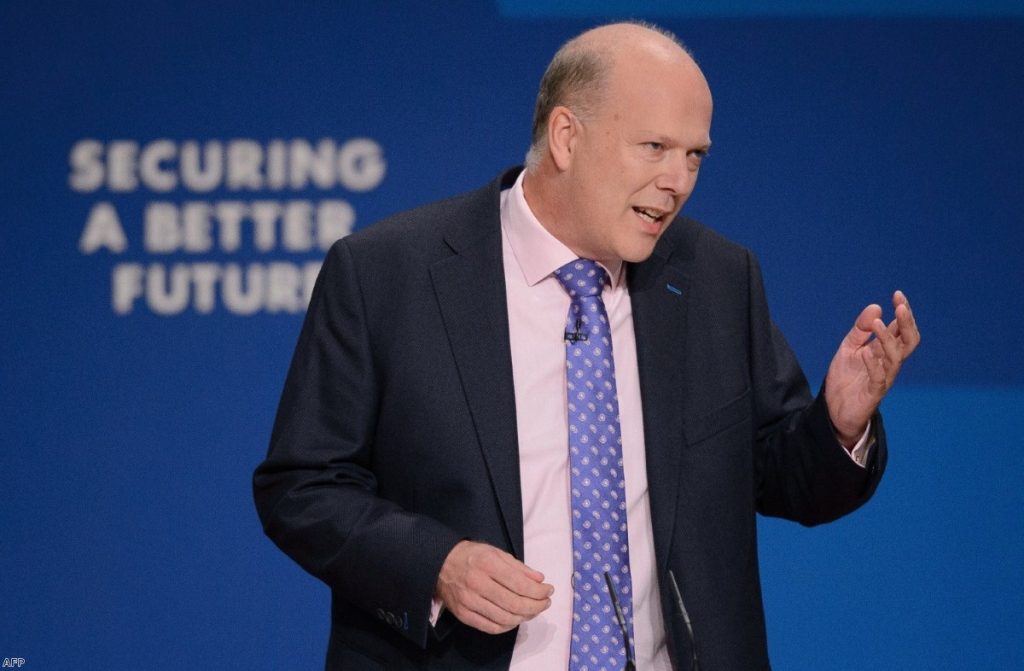‘An interesting minister’: Withering attack on Grayling over charity paranoia
Chris Grayling's paranoia over a Labour-supporting fifth column in the charities sector is well-documented, not least by himself when he elects to write another piece for the Telegraph or Conservative Home. The justice secretary believes leftist agitators have hijacked prison charities and used them to oppose 'common-sense solutions' to our prisons.
What rather calls into question Grayling's account is that their concerns are echoed the chief inspector of prisons, independent monitoring boards, the Prison Governors Association and Lord Rambotham, the former prison inspector who is still a key figure in the sector.
Andrew Neilson, director of campaigns for the Howard League, one of the independent groups accused of being a Labour-supporting body by Grayling, was asked recently about the justice secretary's charge against his organisation by MPs on the justice select committee.
"How do you respond to the secretary of state's assertion that the language used by some pressure groups and commentators to talk about prisons ‘bears little relation to reality'? Do you recognise the conclusion that the system is less overcrowded than a decade ago and that assaults are lower than five years ago?"
Neilson answered:
"The secretary of state is certainly an interesting minister, one who clearly takes the view that the best line of defence is attack. Perhaps a more mature public figure would accept informed criticism for what it is. It is not just so-called pressure groups, non-partisan as we are and bound to be so by our charitable status, who have spoken out but key figures in the sector. We are all describing a prison estate that has deteriorated rapidly and significantly."
No-one who followed prison issues during the New Labour years would mistake the Howard League or their fellow organisations for being Labour supporters. As Blair's 'tough on crime, tough on the causes of crime' came to be more associated with the former than the latter, Labour stuffed prisons to the rafters and threatened a programme of titan prisons which ran against all the thinking on rehabilitation. But there was a key difference: they had money to deal with the repercussions of that policy.
As Neilson wrote to the committee:
"The last government did not have a good record on prisons either and that should not be forgotten. Much of the prison population exploded under Labour's watch. The Howard League was vociferous in its criticism of that government at the time, as we always will be.
"What is true is that there was more money available to address the negative impact of overcrowding – more staff and more resources. Police cells were rented under Operation Safeguard: not a measure we support but nonetheless one way in which the current situation differs from that in 2008/09. There genuinely wasn't the same sense of real danger and mounting pressure in the prisons."
Neilson ends by highlighting the correlation between Grayling's tenure and the sudden decline in standards in British prisons, include sky-rocketing rate of suicide, assault and self-harm.
He answered:
"When we look at the deterioration in recent times, it has happened very rapidly and in the last two years. The committee can draw its own conclusions on that."
None of which is likely to make much of a difference in the halls of the Ministry of Justice, where expert assessments are treated as political conspiracy. Grayling cancelled an inquiry into rape in prison because of his hatred of the Howard League and has frozen them out of meetings on child prisons where the use of force would be authorised. They and many of their colleagues are persona-non-grata.
Whether Grayling actually believes they are a Labour-supporting conspiracy or just thinks it is a useful way of deflecting potential criticism in the Tory party and the right-wing press is uncertain. The decline of prison standards is not.











